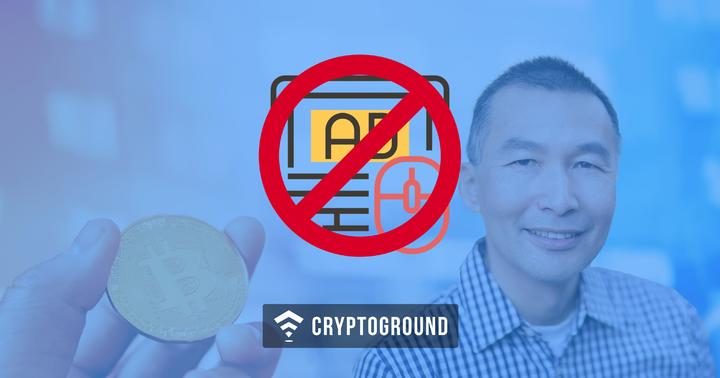SEC embroiled in court cases; Hester Peirce says crypto firms shouldn?t give up on US
As the SEC continues to grapple with legal battles and the crypto industry faces regulatory uncertainty, the future of crypto regulation.

In the fast-paced world of cryptocurrencies, regulatory hurdles and legal battles are becoming increasingly common. The United States, home to a thriving crypto industry, has seen its fair share of challenges. The Securities and Exchange Commission (SEC), in particular, has been embroiled in numerous court cases, raising concerns within the crypto community. However, Hester Peirce, a prominent SEC commissioner, believes that crypto firms should not give up on the US market. In this blog post, we'll delve into the recent legal challenges faced by the SEC and explore Peirce's perspective on the future of crypto regulation in the United States.
Understanding the SEC's Legal Battles
- Ripple Labs Inc. Case
One of the most high-profile legal battles involving the SEC is the case against Ripple Labs Inc. The SEC filed a lawsuit against Ripple Labs, its CEO Brad Garlinghouse, and co-founder Chris Larsen in December 2020. The SEC alleges that Ripple conducted an unregistered securities offering by selling its digital asset, XRP. Ripple Labs vehemently denies these allegations and claims that XRP is not a security but rather a digital currency.
This case has significant implications for the broader crypto industry, as the outcome could set a precedent for how digital assets are classified and regulated in the United States.
- Telegram Group Inc. Case
In October 2019, the SEC filed a lawsuit against Telegram Group Inc., the company behind the popular messaging app Telegram. The SEC alleged that Telegram's $1.7 billion initial coin offering (ICO) for its Gram tokens constituted an unregistered securities offering. The legal battle ended with Telegram agreeing to return $1.2 billion to investors and pay an $18.5 million civil penalty.
The Telegram case demonstrated the SEC's willingness to take enforcement actions against crypto projects it deems non-compliant with securities laws.
- Kik Interactive Inc. Case
Kik Interactive Inc., the company behind the Kik messaging app, faced a legal battle with the SEC over its $100 million ICO in 2017. The SEC interview alleged that Kik's ICO constituted an unregistered securities offering. Kik fought back in court, arguing that its digital token, Kin, did not meet the criteria for being classified as a security.
Ultimately, in October 2019, Kik settled with the SEC, agreeing to pay a $5 million penalty without admitting or denying the allegations. The case underscored the challenges crypto firms face in navigating the regulatory landscape in the United States.
Hester Peirce's Perspective
Hester Peirce, often referred to as "Crypto Mom" for her pro-crypto stance, has been a vocal advocate for innovation in the blockchain and cryptocurrency space. She has consistently advocated for regulatory clarity and a more welcoming approach to the industry. Here are some key points from Peirce's perspective:
- Regulatory Clarity
Peirce has emphasized the need for clear and consistent regulations in the crypto space. She believes that regulatory uncertainty hinders innovation and drives crypto projects and talent away from the United States. Peirce has proposed a "safe harbor" framework that would provide crypto startups with a grace period to develop their projects before having to comply with full securities regulations.
- Enforcement Approach
While the SEC has been active in pursuing enforcement actions against crypto projects, Peirce has cautioned against stifling innovation with overly aggressive enforcement. She believes that the SEC should focus on distinguishing between projects that genuinely pose risks to investors and those that are operating in good faith to build decentralized networks.
- Global Competition
Peirce has highlighted the global nature of the crypto industry, noting that crypto firms have the flexibility to set up operations in more crypto-friendly jurisdictions if the regulatory environment in the United States becomes too challenging. She believes that the US should strive to remain competitive in this rapidly evolving space to retain talent and investment.
- Collaboration with Industry
Peirce has called for greater collaboration between regulators and the crypto industry. She believes that by working together, regulators can gain a deeper understanding of the technology and its potential benefits while providing guidance to ensure investor protection.
The Future of Crypto Regulation in the US
As the SEC continues to grapple with legal battles and the crypto industry faces regulatory uncertainty, the future of crypto regulation in the United States remains uncertain. However, Hester Peirce's perspective offers hope for a more accommodating and innovation-friendly approach.
It's essential to strike a balance between investor protection and fostering innovation in this rapidly evolving space. Regulatory clarity and collaboration between industry stakeholders and regulators will be critical in shaping the future of crypto regulation in the United States.
Crypto Firms Shouldn't Give Up on the US
Despite the legal challenges and regulatory uncertainties, crypto firms should not give up on the US market. The United States is home to a large and diverse group of crypto enthusiasts, investors, and innovators. Here are several reasons why crypto firms should remain optimistic about their prospects in the US:
- Market Size
The United States boasts one of the world's largest and most affluent markets. It represents a significant source of potential users and investors for crypto projects. Tapping into the US market can be incredibly rewarding for crypto firms that navigate the regulatory landscape effectively.
- Innovation Ecosystem
The US is home to a thriving innovation ecosystem that includes Silicon Valley and other tech hubs. This ecosystem provides access to capital, talent, and resources that can help crypto startups thrive and grow.
- Regulatory Evolution
While the SEC has faced criticism for its enforcement actions, there is a growing recognition among regulators that the crypto space requires thoughtful regulation. Many regulators are working to strike a balance between protecting investors and fostering innovation. This evolution in regulatory thinking may lead to more favorable conditions for crypto firms in the future.
- Crypto-Friendly States
Several states in the US, such as Wyoming and Texas, have taken proactive steps to create a more welcoming environment for crypto businesses. These states have enacted laws and regulations that provide legal clarity and support for crypto startups.
- Potential for Regulatory Reform
Hester Peirce's advocacy for regulatory clarity and innovation-friendly policies may gain traction in the future. There is potential for regulatory reform that addresses the unique challenges of the crypto industry while ensuring investor protection.
The SEC's involvement inin legal battles and the evolving regulatory landscape have created uncertainty for crypto firms operating in the United States interview. However, Hester Peirce's perspective offers a glimmer of hope for a more accommodating and innovation-friendly regulatory environment.
Crypto firms should not give up on the US market, as it offers substantial opportunities for growth and success. By staying engaged with regulators, promoting responsible practices, and collaborating with industry stakeholders, crypto firms can help shape a more favorable regulatory landscape in the United States. As the crypto industry continues to mature, finding a balanced approach that ensures both investor protection and innovation will be crucial for its long-term success in the US.
What's Your Reaction?
















